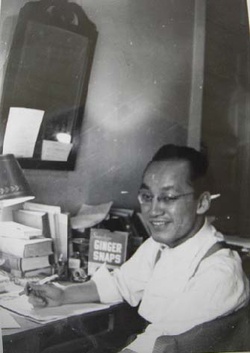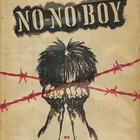Japanese and Blacks in America
Japanese people are a minority in American society and have been subject to racial prejudice since they first immigrated to the United States. In the same way, Chinese and other Asian Americans, Jews, Mexicans, and Native Americans have also faced discrimination and prejudice as minorities.
Okada talks about these racial issues through Ichiro's eyes, and it is clear that he has mixed feelings about black people.
In the first chapter, Ichiro returns to Seattle and is met with yells from black people in the downtown area of what was once the Japanese town, telling him to go back to Tokyo. Okada sees these yells as a sign that those who have been persecuted will now persecute others.
However, in the later chapters, he takes up stories of people who have suffered even worse discrimination than the Japanese, and he sympathizes with black people. He seems to position black people as being even more outside of the category of people who suffer the same discrimination.
Two stories of discrimination against blacks are casually mentioned in the tenth chapter towards the end of the story. Ichiro, the protagonist, decides to look for a job and goes to a Christian rehabilitation center that he heard about from his friend Freddie, which accepts people with various disabilities and illnesses. There, he meets Morrison, the director, and is asked to work with him. After that, he meets his friend Gary, who is already working there.
Gary is also Japanese-American, and has had similar experiences and troubles to Ichiro. He didn't go to war, but instead stayed in an internment camp saying "no, no" or he refused to be drafted and went to prison.
Before working at the center, Gary worked at a foundry for a short time. He was an outsider at work. There were Japanese soldiers who had been discharged from the military and white people, and rumors about Gary's past spread. He was sometimes harassed because of it. But Gary didn't care. As a "No-No Boy," he thought he was as good as dead once, so he accepted that it was all his own fate.
However, Birdie, a strong black man, defends Gary. In this story, the black man stands on the side of those who are being persecuted because he has been persecuted himself. Gary, on the other hand, becomes worried about Birdie. His prediction turns out to be true, and those who tried to bully Gary end up putting Birdie in danger.
Okada skillfully expresses the creepiness of human malice. Gary eventually quits the job of his own accord.
Is God's mercy limited?
After parting ways with Gary, Ichiro thinks about the destiny that changes depending on race, and remembers his Japanese friends from his time in the internment camp.
Before going to prison for refusing to be drafted, Ichiro, like many other Japanese and Japanese-Americans in Seattle, was in an internment camp.
Even though they were in the camp, they were sometimes allowed to go and work at nearby farms when they needed help. One Sunday, Ichiro went to a nearby Christian church with Tommy, a fellow Japanese-American in the camp. Tommy was a devout Christian and serious, and was often teased by his peers, but he always kept a calm smile.
Seeing Tommy like this, Ichiro probably hoped that he would find some answers through faith. However, at the church, he was cruelly treated as an enemy by the white people. Ichiro was angry, but Tommy apologized and begged him to go to another church that was truly Christian, so he went with him again. This time, the white people welcomed them warmly, and the two of them went to the church every Sunday, and were invited to dinner by people they met there.
However, during one of the church services, Ichiro witnesses the attendees and church members who had been so kind to him discriminate against black people. Okada portrays the scene through Ichiro's eyes in a matter-of-fact manner, but he skillfully conveys the sad reality of racial discrimination.
An old black man arrives at a packed church service. He stands at the back and listens to the speech. Usually, a folding chair is prepared by an attendant, but there is no sign of it. Finally, there is a rustling sound, and Ichiro is relieved that a chair has been prepared. However, the chair is for a white family who arrived later, and the old black man is still standing.
Moreover, after the service ended, people would usually gather together here and there to talk, but on this day it was quiet. However, the moment the old black man left the church, everyone started moving about as if they had regained their energy. It was a scene of silent discrimination.
Ichiro says angrily to Tommy.
"You good Christians seem to be very stingy with mercy."
Tommy then screams in rage.
"They like us. They treat us well. We have our own problems. We're not in a position to get involved in other people's problems."
Ichiro replies.
"That's good. You've been hanging on to that thing for a long time. Huh? Guys like you want to have that kind of fun, don't you?"
After this, Ichiro hears Tommy sobbing.
This is a striking scene that gives us an idea of the author's thoughts on race.
(Titles omitted, translation by the author)
© 2016 Ryusuke Kawai







